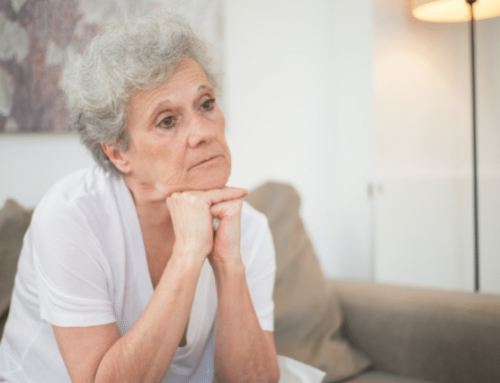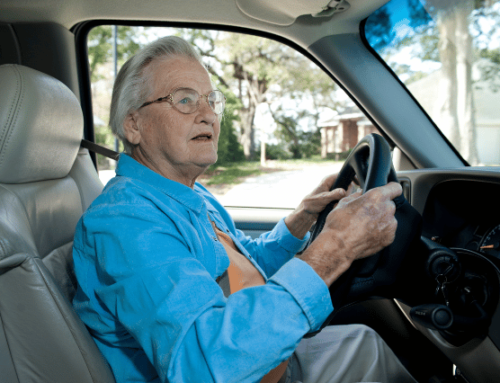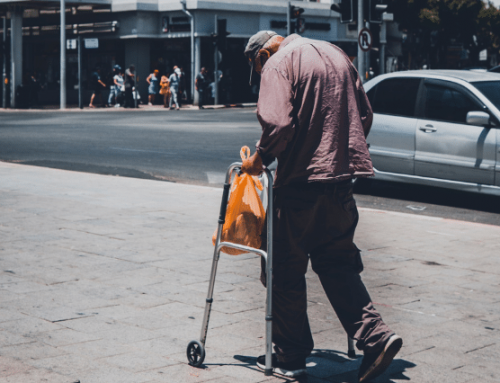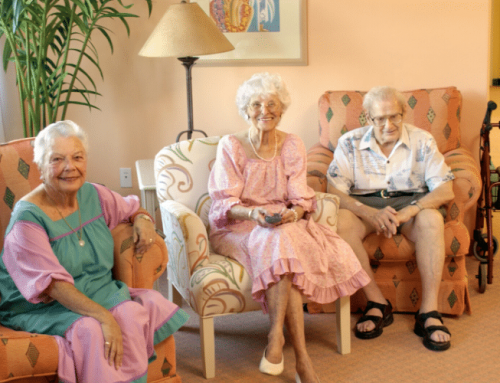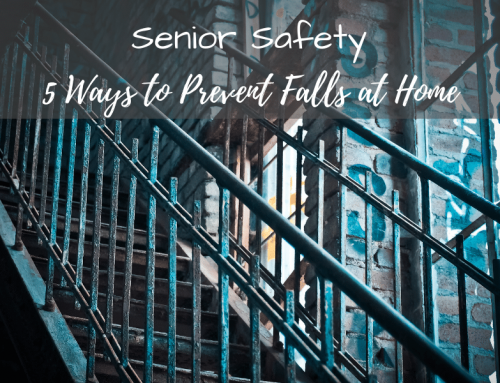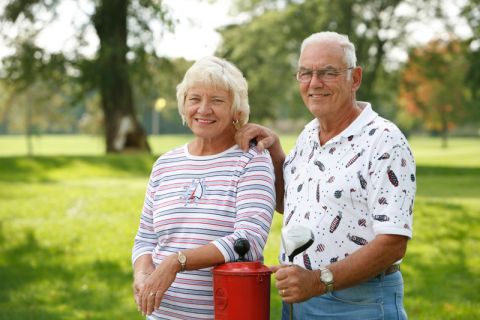
It’s summer, and the days are only getting hotter for the next couple of months. While this generally means family reunions, picnics, golf, tennis, and other outdoor activities, it can also pose a safety risk, especially for older individuals.
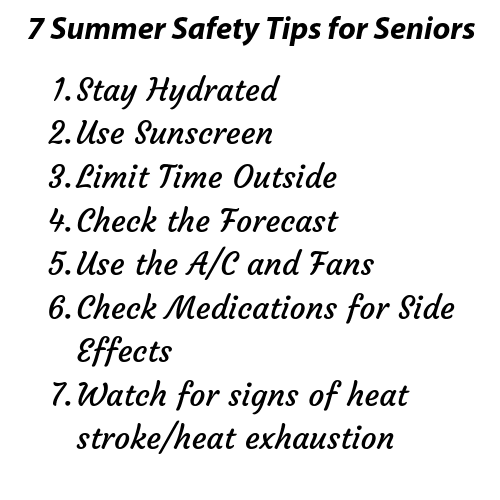
We are here with 7 tips that will help ensure your time outside remains fun and enjoyable.
1. Stay Hydrated
In general, the rule of thumb is to drink 8 8-oz glasses of water each day. If you plan to spend time outside, it is highly recommended that you aim for at least 10 to 12 8-oz glasses.
Drink “sports drinks” sparingly. They do contain electrolytes (which help, amongst other things, regulate your heartbeat), , but they typically contain sugar or artificial sweeteners, which are unhealthy…best bet, stick to good old fashioned water…and lots of it.
Also, pro tip, don’t wait for your body to tell you that you’re thirsty, especially if you’re sweating, you’ll need more water than usual, and if you wait for your body to tell you it’s time, it will be too late…be proactive!
2. Use Sunscreen
Even in the shade, the UV rays get through, and can cause you issues…best case scenario is a sunburn, worst case…well, you understand…It only takes a minute or two to apply sunscreen, and it can save you significant problems, from minor inconvenience, to saving your life.
Some of the best rated sunscreen is from Trader Joe’s. It’s SPF50, in a spray can, and you can easily reapply it as needed, as the day wears on, or if you take a dip in the water. Most important is that you stay safe, and protect your skin.
3. Limit Your Time Outside
On the heels of “Using sunscreen”, you should keep your exposure to sun and high temperatures to a minimum, as much as possible.
Especially if you live somewhere it gets really hot, you should keep your outdoor activities to a minimum on hot days. Rather than spending the whole day out in the sun, break it up into blocks of a couple of hours and then head inside for a break.
It’s important to remember that you don’t always feel the effects of the sun in the moment, but it can build to something dangerous if you’re not careful to limit the time you spend outside on hot days.
4. Check the Forecast
The running joke in Atlanta is, if you don’t like the weather, wait 5 minutes, and it will change. You should still check the weather report before you make plans.
This way you will know what to expect of the weather before you go out so you can dress appropriately and plan your day accordingly. You don’t want to be caught outside unexpectedly on a 100° day.
Don’t risk being stuck outside when record temperatures hit in the afternoon. When things start to heat up during the day, make sure have an easy way to get in from the outdoors so you can take breaks and cool off.
5. Use the A/C and Fans
I know it’s easy to use the cost of running the A/C as an excuse, but summer heat waves can have serious consequences for seniors. Make sure you’re comfortable and safe in your own home, it is worth a little bit of a splurge. If you don’t have an air conditioner, consider buying one. Window units are reasonably priced and pretty efficient to run. The Low Income Home Energy Assistance Program may help with the cost, if you qualify.
If you don’t have A/C in your home and can’t find a way to fit one in your budget, take trips to the mall, the movies, or the closest library during times of the day when it is hottest. You can take advantage of their A/C for a little while and make your way back home once the day starts to cool down.
6. Check Your Medications for Side Effects
Some medications make people more sensitive to the heat or the sun. Check your prescriptions to see if you need to take extra precautions. Most likely, you can still participate in your outdoor activities. In most cases, medications that cause sensitivity to heat or sun will have a list of suggestions to follow to help you safely enjoy the outdoors.
7. Watch for Heat-Related Conditions
There are 4 primary heat-related conditions to be mindful of:
- Dehydration: Extreme water loss in your body, can be serious if not treated immediately. Some warning signs are: Weakness; headache; muscle cramps; dizziness; confusion; and loss of consciousness. How to treat it: Call your healthcare provider or 911 (if you feel it is serious). Drink plenty of water and this is where “sports drinks” such as Gatorade™ (which contain electrolytes) can be helpful. Your body loses electrolytes when you’re dehydrated.
- Heat Stroke: A very dangerous, acute rise in your body temperature which can be deadly. Warning signs: Body temperature of 103 or higher; red, hot, and dry skin; a fast pulse; headache; dizziness; nausea or vomiting; confusion; and passing out. How to treat it: Call 911 immediately, this is very serious. Move to a cool, shady place, take off or loosen heavy clothes. If possible, douse yourself with cool water, or put cloths soaked with cool water on your wrists, ankles, armpits, and neck to lower your temperature. Try and see if you can safely swallow water or sports drinks. Note: If you are caring for someone else who has heat stroke, only give them water or drinks if they are awake and can swallow.
- Heat Exhaustion: A serious health problem caused by too much heat and dehydration. If not treated, it may lead to heat stroke (above). Warning signs: Heavy sweating or no sweating, muscle cramps, tiredness, weakness, paleness, cold or clammy skin, dizziness, headache, nausea or vomiting, fast and weak pulse, fainting. Treatment: Immediately move to a cool, shady place, and drink plenty of cool fluids, such as water or Gatorade. Call 911 if you have high blood pressure or heart problems, or if you don’t feel better quickly after moving to the shade and drinking liquids.
- Heat Syncope: Fainting caused by high temperatures. Warning signs are dizziness and/or fainting. To treat it, lie down and put your feet up, drink plenty of water and other cool fluids, and it should pass before long.
Hopefully these tips can help you be proactive, and enjoy your time outside, even in the hotter weather. At least you can be prepared just in case you, or a loved one, begins feeling the affects of the heat. If you suspect you’re experiencing any of the conditions, don’t be shy about speaking up and asking for water, shade, and/or some time inside with air conditioning. It’s better than a trip to the emergency room. Be proactive, be safe, and have fun!

